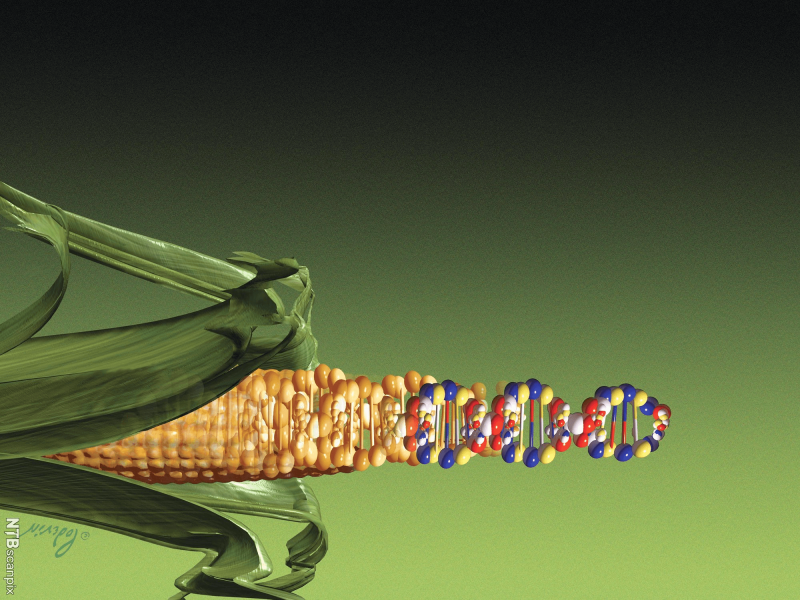Viewpoint: We need scalable solutions to meet the surging global demand for food. Here’s why biotechnology is key
Viewpoint: We need scalable solutions to meet the surging global demand for food. Here’s why biotechnology is key


According to the United Nations, the world’s population is projected to reach nearly ten billion by 2050.1 Against this backdrop, problems such as climate change, soil degradation, water scarcity, new and aggressive plant diseases, and political instability threaten the world’s existing food production systems.
That said, recent developments in (bio)technology4 are giving industry players hope. Biotechnology combines natural and engineering sciences to create products and technologies in human and animal health, agriculture, and the environment. In terms of safeguarding food systems, these developments include the following:
- more-targeted chemical protection for plants and better understanding of the possibilities of combinations of chemicals based on big data and advanced statistical modeling
- bioengineering of plants to avoid the need for chemical protection
- improved field management through precision farming
…
Advancements in biotech are still relatively nascent when compared with industries with accelerating rates of tech adoption, such as pharmaceuticals. Yet the availability of genetic engineering, GPS, and AI, as well as increased computing power, have opened up the possibility to drastically improve solutions in biotech, which have traditionally depended on time-intensive test-and-learn approaches.
…
The recent advancements in biotechnology we outline here offer promising solutions to the challenges that global agriculture faces. By strategically integrating biotechnology and other next-generation agriculture techniques, food producers can create more-resilient and more-sustainable food systems that meet the demands of a growing population while reducing environmental impact.
This is an excerpt. Read the original post here

 | Videos | More... |

Video: Nuclear energy will destroy us? Global warming is an existential threat? Chemicals are massacring bees? Donate to the Green Industrial Complex!
 | Bees & Pollinators | More... |

GLP podcast: Science journalism is a mess. Here’s how to fix it

Mosquito massacre: Can we safely tackle malaria with a CRISPR gene drive?

Are we facing an ‘Insect Apocalypse’ caused by ‘intensive, industrial’ farming and agricultural chemicals? The media say yes; Science says ‘no’
 | Infographics | More... |

Infographic: Global regulatory and health research agencies on whether glyphosate causes cancer
 | GMO FAQs | More... |

Why is there controversy over GMO foods but not GMO drugs?

How are GMOs labeled around the world?

How does genetic engineering differ from conventional breeding?
 | GLP Profiles | More... |

Alex Jones: Right-wing conspiracy theorist stokes fear of GMOs, pesticides to sell ‘health supplements’




 A single high dose of LSD can ease anxiety and depression for months
A single high dose of LSD can ease anxiety and depression for months From plastic coasters to human hearts: Inside the race to print the human body
From plastic coasters to human hearts: Inside the race to print the human body Baby food panic, brought to you by trial lawyers hoping to prosecute by press release
Baby food panic, brought to you by trial lawyers hoping to prosecute by press release CRISPR pork: U.S. approves first gene-edited pigs for consumption
CRISPR pork: U.S. approves first gene-edited pigs for consumption ‘SuperAgers’: Why some people have the brains and memory capacity of people decades younger
‘SuperAgers’: Why some people have the brains and memory capacity of people decades younger  Viewpoint: Life and death decisions: RFK, Jr.’s shady FDA “expert panels” operate in secret with no transcripts or conflict of interest reviews
Viewpoint: Life and death decisions: RFK, Jr.’s shady FDA “expert panels” operate in secret with no transcripts or conflict of interest reviews From ‘Frankenfood’ to superfood: Can the purple tomato overcome GMO myths to win over consumers?
From ‘Frankenfood’ to superfood: Can the purple tomato overcome GMO myths to win over consumers? When farmers deny science: The hypocrisy hurting agriculture’s credibility
When farmers deny science: The hypocrisy hurting agriculture’s credibility
